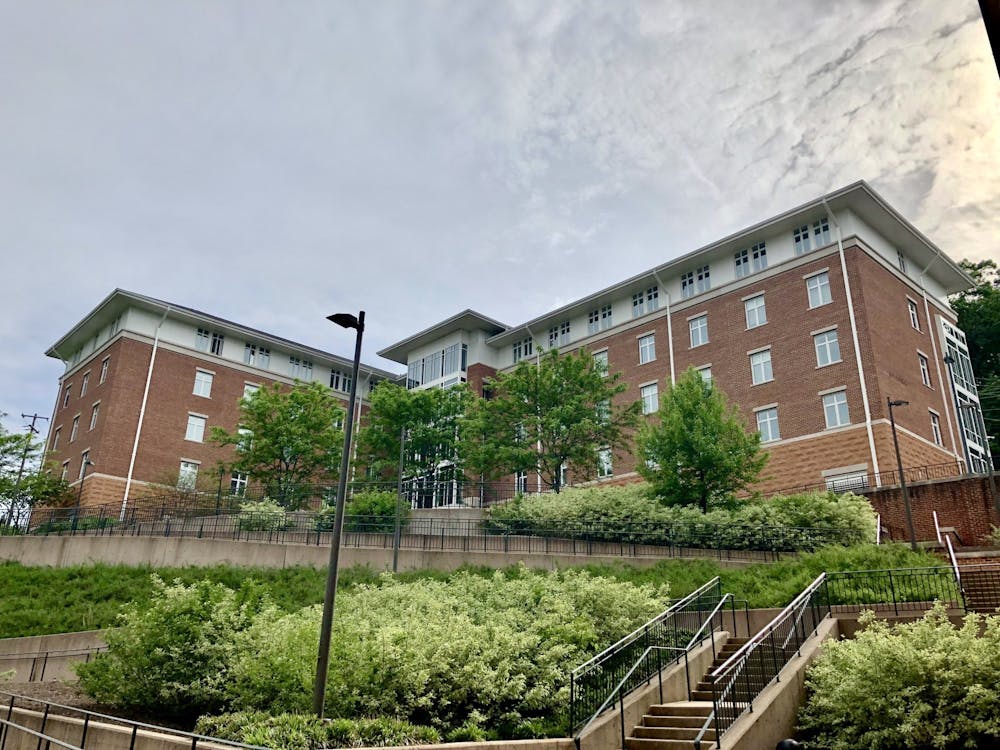中文版请点击此处
After their first year on Grounds, many students opt to leave the bubble of University dorms and venture out into the housing market — on top of stresses in signing leases or finding roommates, students are increasingly struggling to find quality affordable housing options in Charlottesville as property values and student demand continue to rise.
Since 2021, housing costs in Charlottesville have increased 25 percent, per a report from the City Assessor’s Office released at the end of January. In 2023 alone, residential properties increased by an average of 11.5 percent. The costs reflect an increase in home market value which could lead to increases in property taxes for homeowners.
For students searching for off-Grounds housing in an already competitive housing market, the increase in taxes might affect rent values, per City Assessor Jeffrey Davis.
“If rents increase to offset these tax increases, it certainly would have an impact on anyone — not just U.Va. students,” Davis said, “Anyone who rents would see higher rent payments due to these increased [property value] assessments.”
A major factor of the increase, Davis said, is because of the low supply but high demand in the residential market. As of 2022, roughly 74 percent of University students choose to live off-Grounds after their first year — just under 12,500 students who must find housing in Charlottesville.
Second-year College student Tyler Kennedy moved out of dorms after her first year and said she chose to live off-Grounds in an apartment because she wanted to be close to the Corner. According to Kennedy, the high demand has complicated the process.
“There are too many students trying to get into the same places,” Kennedy said. “I think that because Grounds is so centralized and small, it is difficult to accommodate the large amount of students that want to live close to the Corner and Grounds.”
Kennedy said she wished the City of Charlottesville and the University would do more to help make housing affordable for students in the wake of the increasing cost of living, such as implementing price ceilings.
First-year College student Luz Argueta plans to live in the on-Grounds Copely apartments her second year because of her financial aid agreement. Despite it being the cheapest option for her situation, Argueta feels the cost of on-Grounds housing is too high, especially given how outdated and far from grounds most options are.
“The housing is pretty old and for the price, I feel like it’s better to just get off-grounds housing like most students do,” Argueta said.
Her future apartment, located on North Grounds across from the Law School, is not walkable and requires her to take the bus to grounds each day. She believes the University needs to invest in closer housing for upperclassmen to give students more convenient housing options.
Increased housing costs have long been an issue in Charlottesville since 2012. In 2020, University President Jim Ryan established an affordable housing advisory group whose aim is to find solutions to housing issues.
One goal the group outlined is to develop roughly 1,500 affordable housing units in the next decade on property owned by the University. Residency would not, however, be limited to students. As of Jan. 23, the University has requested quotes from development teams for projects on Piedmont apartments, the corner of Wertland ave. and 10th St. and portions of North Fork off US-29.
“This housing is intended to serve community needs broadly, not to be limited to students or others in the University community,” University Spokesperson Bethanie Glover said in an email to the Cavalier Daily.
As part of the 2030 Strategic Plan, the University is also considering requiring all second-year students to live on-Grounds as a way to alleviate pressure on the rental market in Charlottesville for local residents.
While there have been mixed opinions concerning mandatory on-Grounds living for second-years, Kennedy supports the idea if it benefits students financially.
“I think that requiring second-years to live on-Grounds is a good idea to lower prices,” Kennedy said. “While it may be unideal for the second years during that time, they will ultimately benefit from the lower rent prices the following years.
According to Glover, the University is still working on how to mitigate housing price issues and housing concerns.
“Affordable housing is a complex issue,” Glover said. “Addressing this and other local issues in meaningful ways requires creative thinking and partnership among many players in the region.”







